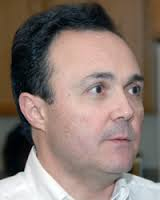MIPSE Seminar
Microplasmas for Reconfigurable Radio-Frequency Electronics

Microplasmas are promising for a new class of applications: tunable and reconfigurable radio-frequency (RF) electronics, such as antennas, resonators, and filters. In this talk, we discuss both the RF applications that motivate the plasma research and the relevant plasma physics. First, we discuss antennas where plasmas are used as electrical conductors. Although the gain is generally low, the cross-coupling between elements of an array is also low. We show results of testing simple microplasma-based dipole antennas, and then discuss more sophisticated antennas with microplasma elements imbedded in metamaterial structures. Thermal EM noise is critical to any antenna. We show that the low-frequency noise in plasma antennas is stronger than in metallic devices, but at frequencies higher than the electron collision frequency the plasma noise is suppressed. Since the demand to reduce losses and noise dictates operation of plasmas with collision frequencies much lower than that of the RF, the EM behavior of such plasmas is that of low-loss dielectric whose permittivity can be tuned. We discuss experiments with basic LC circuits, where plasma ignited inside the capacitor changes the resonant frequency. With low pressure (<10 mTorr) required to suppress losses and noise, sustaining a microscale (<100 microns) plasma with a high electron density at low voltage seems impossible. We propose a novel method to generate plasmas employing nano-technology, without conventional electron impact ionization.
Sergey Macheret has received his M.S. and Ph.D. degrees from Moscow Institute of Physics and Technology and Kurchatov Institute of Atomic Energy, respectively. Since moving to the US in 1991, he worked at the Ohio State University (1991-1994) and Princeton University (1994-2006). From 2006 to 2014, he worked at Lockheed Martin Aeronautics Company's Skunk Works, where he was in charge of projects on aerospace applications of weakly ionized plasmas. In 2014, he joined Purdue's School of Aeronautics and Astronautics as a Professor. Dr. Macheret's research interests are: physical and chemical processes in low-temperature plasmas and high-speed flows, novel methods of generation and control of plasmas, and applications of plasmas to aerospace and electromagnetic technologies.
 MENU
MENU 
